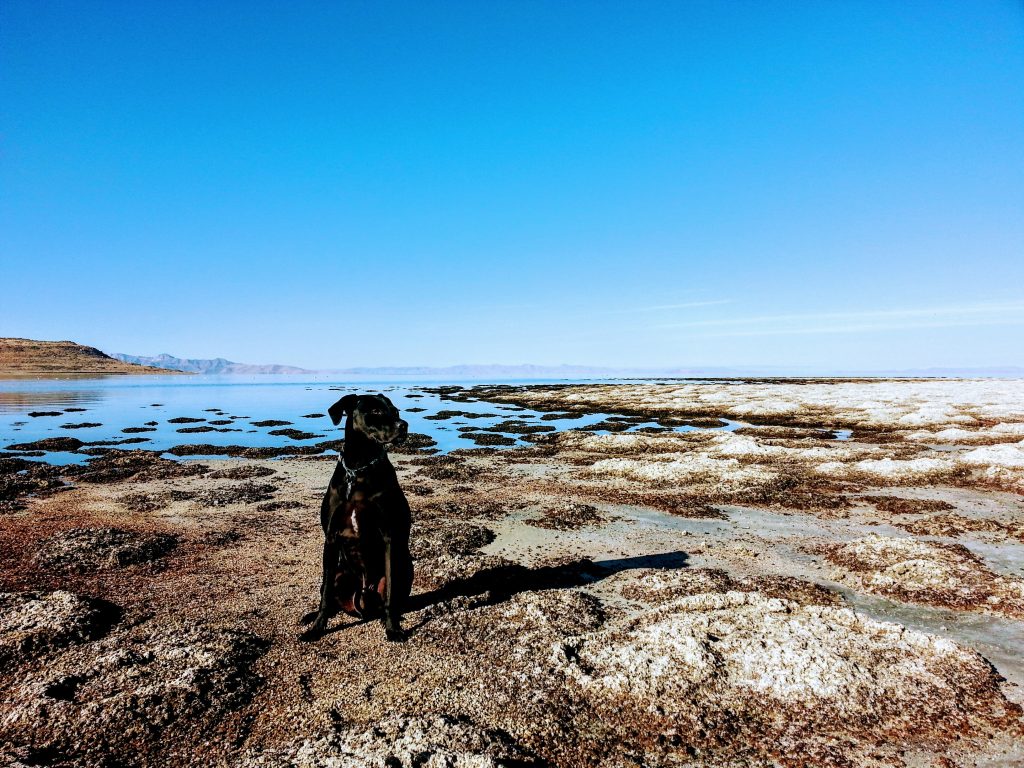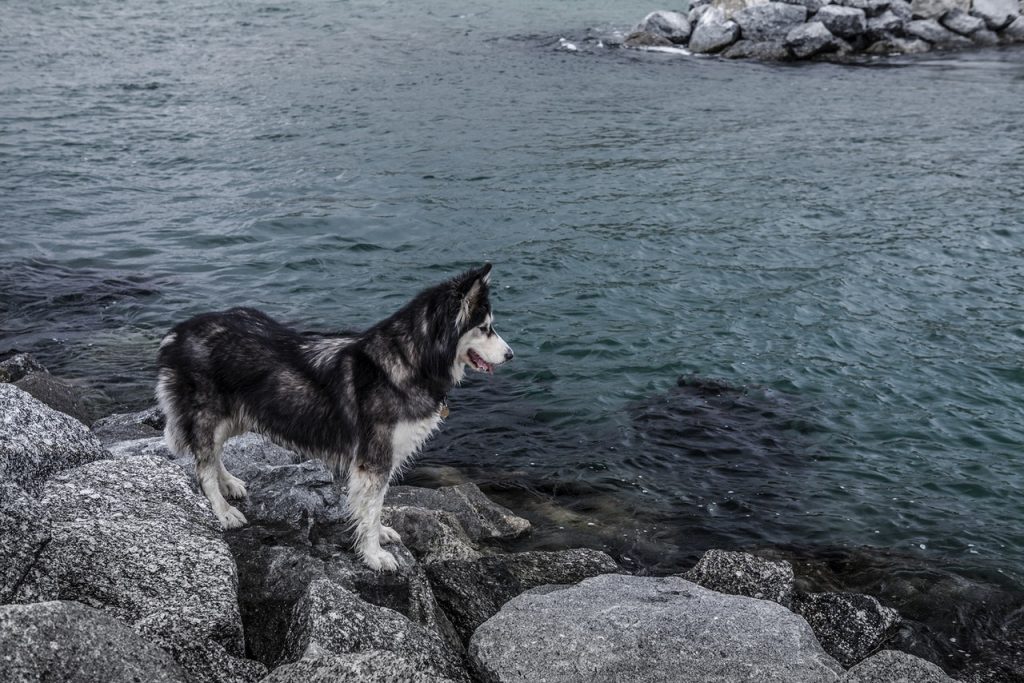Can Dogs Eat Seaweed? (Solved)
Dogs are scavenging creatures and are known for eating anything they come across. Just because dogs will eat anything doesn’t mean it’s good for them. So, can dogs eat Seaweed? Seaweed is a type of algae that grows in the ocean. It’s a source of vitamins, minerals, and other nutrients. And while it’s safe for…
Dogs are scavenging creatures and are known for eating anything they come across. Just because dogs will eat anything doesn’t mean it’s good for them.

So, can dogs eat Seaweed? Seaweed is a type of algae that grows in the ocean. It’s a source of vitamins, minerals, and other nutrients. And while it’s safe for humans to eat, that doesn’t mean it’s safe for dogs. There are a few things to consider before feeding your dog seaweed.
In this blog post, we’ll explore the benefits of feeding Seaweed to dogs and what they can do for your dog’s health.
Can dogs eat Seaweed?
Yes, dogs can eat Seaweed, but it’s best to avoid the salty varieties. Seaweeds are used as ingredients in homeopathic medicines, supplements, and different alternative medicine.
Seaweeds are GRAS generally recognized as safe in minor quantities in the group of spices (FDA 2001, 2003). Seaweed is a part of commercial dog foods. Kelp, nori, and wakame are non-toxic seaweeds for dogs.
However, not all seaweed products are safe for your dog to eat. You should also be careful about the type of Seaweed your dog is consuming.
Seaweed can be toxic for dogs if eaten in large amounts or for long periods. It is vital to feed them in moderation. Too much Seaweed can cause gastrointestinal upset or other health problems.
Can dogs eat packaged seaweeds?
Yes, dogs can eat packaged seaweeds; it is a rich source of omega-3-fatty acids, iron, magnesium, and vitamins.
But, choosing the right type of Seaweed for your dog is essential, as some varieties can be toxic.
Always select a certified organic, edible variety when feeding your dog seaweed. The safe seaweeds for your canine friend are kale and wakame.
Seaweeds are often used as a flavor enhancer in canned and dog foods. Seaweeds are also sometimes used as a source of natural color.
Can dogs eat seasoned Seaweed?
Dogs can eat only safe seasoned Seaweed such as kale and wakame. These are excellent dietary sources of iodine and minerals.
Make sure to give them plenty of water after eating it so they don’t get dehydrated.
It is vital to ensure that you are feeding your dog only the safe types of seasoned Seaweed.
Why is Seaweed in dog food?
Seaweeds are nutrient-dense and rich in minerals and vitamins, making them an excellent addition to a dog’s diet.
They also contain antioxidants that help protect against specific diseases in dogs. Seaweeds contain minerals like iodine, essential for thyroid health.
These are also high in protein and can be used to make homemade dog treats or as part of your dog’s diet. Yet, seaweeds have a few downsides.
They contain high levels of iodine that can cause iodine toxicity in dogs. You should avoid feeding these to puppies under six months old.
Can dogs be allergic to Seaweed?
It’s more common for dogs to be allergic to grass, but Seaweed is also a common cause of allergies in pets.
Seaweed contains iodine, which can cause a severe allergic reaction in dogs.
Your dog may react to certain types of Seaweed if they eat plenty of it.
Seaweed allergies can cause symptoms such as itching, rashes, and diarrhea.

If this happens, ensure they drink plenty of water so they don’t become dehydrated.
If your dog reacts to seaweeds, consult your veterinarian immediately.
Is Seaweed good for the dog?
Seaweed is suitable for dogs! Seaweed is a popular pet food ingredient that’s high in protein and low in fat.
It can be toxic if too consumed, so ensure your dog has a balanced diet. Seaweed helps with joint health, coat health, digestive health, and skin issues.
Seaweed can also help strengthen the immune system and prevent allergies in dogs.
Can Dogs have Seaweed with sesame oil?
Yes, most dogs will love a bowl of Seaweed with sesame oil (again, in very small quantities!).
Sesame oil is good with seaweeds because it can help to reduce the salty taste of Seaweed. This dish is a great way to get extra vitamins into your dog’s diet.
Sesame oil is healthy food for dogs because it has many essential nutrients like calcium, iron, and vitamins A & D, which help maintain the immune system of dogs.
What to do if your dog ate Seaweed at the beach?
Dogs should not eat wild Seaweed on the beach. It contains toxic pollutants and chemicals. They could lead to severe vomiting, diarrhea, and dehydration. Also, dried-up seaweed might expand in the stomach and blockage the intestines.

Keep an eye on your dog after he eats or ingests Seaweed. It includes checking his stool & urine frequency, eyes, and skin for irritation or redness. Try to keep your dog hydrated with water and IV infusions.
Call the vet immediately if you’re concerned about your dog’s health. The veterinarian will perform an immediate x-ray to rule out the presence of seaweeds.
The vet may suggest medicines if there are no signs of blockage and the dog’s condition is stable. In case there are signs of obstruction, your dog needs surgery.
Seaweed benefits for dogs
1. Seaweed contains iodine, which can help maintain healthy thyroid levels in dogs.
2. Seaweed also contains omega-3 fatty acids, which benefit your dog’s heart, coat, and joint health.
3. The vitamin C content of Seaweed can help boost your dog’s immune system.
4. Seaweed provides high levels of protein and fiber that help digestion and build muscle tissues.
5. Seaweed helps with allergies by reducing inflammation (like arthritis) and skin problems. It can be beneficial if you have a dog with seasonal and other types of allergies (like dust mites).
6. Seaweed contains many beneficial minerals for dogs’ health, including folate and zinc. These minerals help build strong bones and teeth. They also provide strength and endurance during exercise sessions.
List of Dog Safe Seaweed
Nori is safe seaweed for dogs in small quantities and can be part of your dog’s diet. Nori can also be used as part of a treat when training and praising your pup with added calories.
Kelp is another safe seaweed your dog can enjoy in small quantities. Make sure to avoid seaweed that has high sodium levels and other spices like garlic.
Wakame is another seaweed coming from the Kelp family that is safe for your dog. Small quantities of seaweed can boost your dog’s iodine, manganese and folate levels.
Conclusion!
Based on the evidence presented, small amounts of Seaweed are not harmful to dogs.
Seaweed is a good source of nutrients for dogs and can help improve their skin and coat health.
Seaweed is a great way to add some goodness to your dog’s diet and can be used as a supplement in dog food.
If you prefer to feed your dog seaweed, monitor their intake and sodium levels (and other spices). Consult with your veterinarian if you have any concerns.





